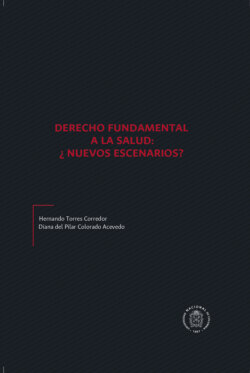Читать книгу Derecho fundamental a la salud: ¿Nuevos escenarios? - Hernando Torres Corredor - Страница 36
На сайте Литреса книга снята с продажи.
Introduction
ОглавлениеThe recognition and respect of human rights are the foundation of a democratic social living and express the popular pressure upon the state’s power or upon those who exercise state’s power to the development of better ways and standards of living. The legal recognition of universal human rights that shall be observed by democratic states, as well as the institutional arrangement that allows the exercise of these rights by the people, must be a constant object of improvement in modern societies, in order to permit the balancing between the sovereign wishes –people’s wishes, in the republican democracies– and the limits and forms of state’s power exercise by governments.
According to the established democracy related literature, the process of rights institutionalization in modern occidental societies followed a chronological incorporation of civil, political and social rights, in this order. The society’s historical construction and its legal and institutional framework have been chronologically incorporating those rights in a movement where the most recent recognized rights correspond to the less consolidated institutional forms of recognition and incorporation. Actually, social rights, as the right to health, constitute a domain in which democratic institutions present their major fragility.
In this context, the right to health has been recognized as a social right in several countries, but it still makes part of a recent reality in early stages of development. To promote its effectiveness, it is necessary to have what we call as sanitary democracy. Right to health, health equity and democratic living would be strengthened by the dissemination of democratic values, the respect of rights, institutions and procedures involved in their structuring and by democratic decision-making process.
In this way, the democratic living would be strengthened by the dissemination of democratic values –the respect of rights and institutions and procedures involved in their structuring– and by the decision making process functioning. The one and the other, values and procedures, must be exercised in all social life extent.
In Brazil, right to health was recognized by 1988 Constitution as a universal right and a state’s duty. Different countries have different ways of recognizing health as a universal right, and also have different ways of implementing efforts to fulfill this right.
In order to investigate and analyze the incorporation of right to health in different countries, this paper will present the partial results of an international research called Right to Health and Health Democracy: Bridges to Citizenship, that has as main objective understand how right to health is legally recognized and fulfilled by democratic states with high level of economic development – Brazil, China, India, South Africa and Russia.
